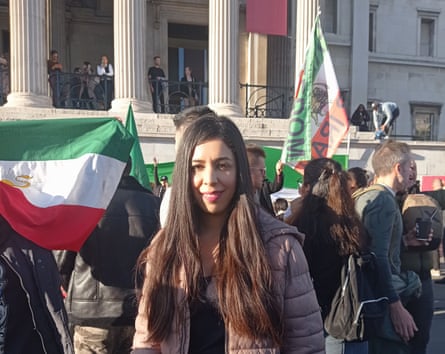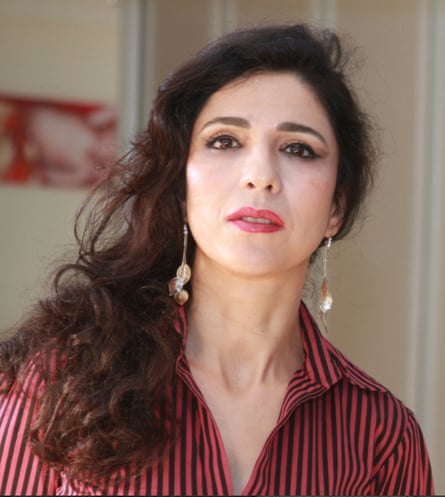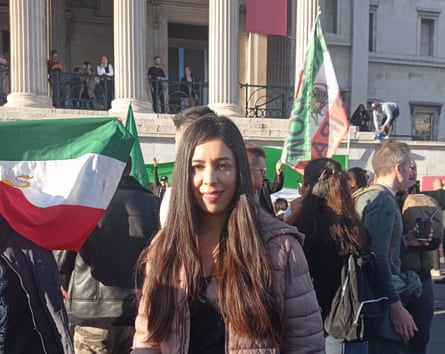[ad_1]
Iranian and Kurdish women living in the UK believe the prospect of freedom for millions of women in their home country has never been greater following protests after the death of Mahsa Amini, who was arrested in Tehran for not wearing her headscarf correctly.

Many of those who fled the Iranian regime because of its attacks on human and women’s rights are working hard behind the scenes to support women in their home country to expose the abuses in the hope of encouraging the international community to act to bring about regime change.
They say the demonstrations inside Iran and around the world, in which at least 185 people are reported to have been killed, are different from previous protests and this time there is a real possibility change will come. After Amini’s death, Nika Shakarami and Sarina Esmailzadeh, both 16, have also lost their lives in anti-regime protests.
The international chess judge Shohreh Bayat, 35, who lives in London, urged the international community to act after Amini’s death on 16 September. “This is not a protest any more. It’s a revolution. It is very important for the world to stand on the right side of history. We are fighting for freedom and for women’s and human rights,” she said.
Bayat fled to the UK and claimed asylum in 2020 after being accused by an Iranian official of not wearing her headscarf correctly at a chess tournament in Shanghai. “This is about the pain of all Iranian women. We think that all of us are Mahsa. That’s why we are all her voice.”
An Iranian feminist blogger in the UK who has to conceal her identity in order to protect her family who are still in Iran, is doing all she can with her blog, which is read covertly by many Iranian women, to promote their fight for freedom. She blogs as RM on Telegram and is constantly having to resurrect her blog when the Iranian authorities intercept it and close it down.
“One spark can create a big fire,” she said. “Young people in Iran are saying: ‘We must rise up now or we will be the next Mahsa.’ I’m optimistic that if the regime does not go today it will go one day. They cannot keep harassing women like this and get away with it. Women are standing up for the right to lead the normal life that women in other parts of the world can lead.”

A third of Iranian woman who fled to the UK said they had tried to promote ideas of women’s rights in their workplace in Iran but their life was threatened for doing so and so they escaped to the UK. “Women in Iran have no rights over their bodies and no rights over what they wear. If a robbery happens in Iran and you call the police they take a long time to come. If someone calls the police because they have seen a woman not wearing a hijab, they come very quickly.”
Chiman Rahimi, a Kurdish Iranian woman who works in the UK for Iran International TV which is critical of the Iranian regime, said Amini’s death had particular resonance for Kurdish women who are doubly oppressed in Iran.
She said that while there have been underground women’s activities in Iran for some time – book clubs, mountain hikes, dance and music activities and a few years ago “White Wednesday” where women posted photos of themselves on social media wearing white and without their hair covered – what is happening now is different.
Rahimi said: “Mahsa’s death has been a catalyst for people to demand radical change. Right now almost every woman in every city, town and village is in some way aware of how they are being abused and dehumanised. They are united in overturning the old and establishing a new.”
[ad_2]




